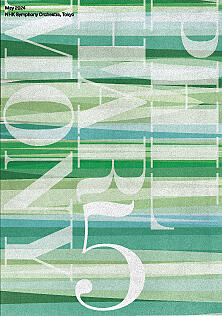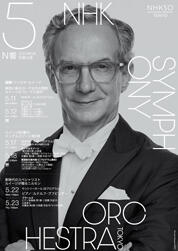- Home
- Concerts
- Subscription Concerts 2023-2024
- Program B
- No. 2012 Subscription (Program B)
Subscription Concerts 2023-2024Program B
No. 2012 Subscription (Program B)
Suntory Hall
Google Map Seating Chart
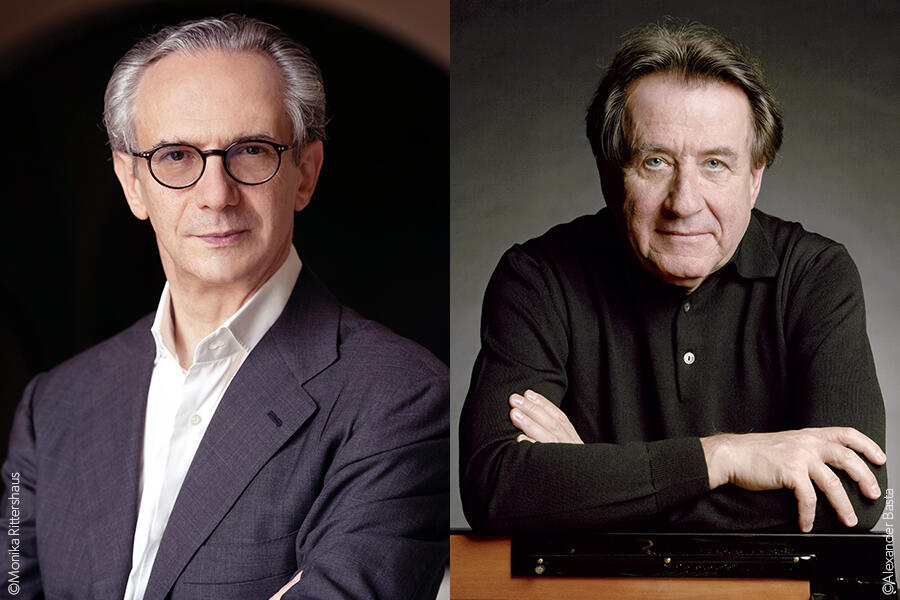
Program
Brahms / Piano Concerto No. 1 D Minor Op. 15
New Paths – the composer and critic Schumann (1810–1856) entitled his article this in October 1853 to extoll an unknown Hamburg-born twenty-year-old named Johannes Brahms (1833–1897). Unfortunately, Schumann, who quickly became Brahms’ mentor, was unable to witness the “new paths” ahead: suffering from mental illness, Schumann attempted suicide in February 1854, prior to his two-year confinement in a sanitarium and subsequent passing. This gave Brahms a terrible shock, which is said to have influenced the dark side of his Piano Concerto No. 1 to some extent. Its origin, a sonata for two pianos, was indeed born in the spring of 1854. After striving to reshape it as a symphony in vain, he recycled the draft to finish the opening movement of his first piano concerto in the autumn of 1856. The third and then second movements were completed before long.
Besides the piano part turning its back on any pleasant showiness, the first audience might have been puzzled about the tonally harsh start of this concerto: strings state the B-flat-major main theme with intimidating trills, over a stern D-minor chord. Suggestive is that Brahms inscribed “Blessed is he who comes in the name of the Lord” on the sketch of the not-earthly second movement. The vigorous finale is a Baroque-inspired rondo with two episodes (in A–B–A–C–A–B form). It has, rather unusually, two separate cadenzas (the soloist’s virtuosic passages) which lead the music to a brilliant D-major close.
[Kumiko Nishi]
Nielsen / Symphony No. 2 B Minor Op. 16, The 4 Temperaments
The most prominent Danish composer of all time, Carl Nielsen (1865–1931) studied composition in Copenhagen under the senior compatriot Niels Gade (1817–1890) who had lived in Leipzig in the 1840s deepening his friendship with Mendelssohn and Schumann there. While composing, Nielsen started his career as an orchestral violinist in 1889. He later served as a conductor with the Royal Theatre in Copenhagen and the Orchestra of the Copenhagen Music Society.
Nielsen left us a vast catalogue including six free-spirited symphonies (premiered on his native soil between 1894 and 1925), concertos, two operas and a profusion of songs and choral works. His early symphonies clearly follow the tradition of Brahms and Dvořák (1841–1904), while the Danish composer is seeking to free himself from it, consciously or unconsciously, as early as in his quite unique Symphony No. 2.
No. 2 was completed in 1902 and first performed the same year under the baton of Nielsen himself. It has a Classical structure having in the middle the waltz movement (replacing a Classical minuet/scherzo movement) and the tuneful slow movement: only the four movements and the entire work itself are given the titles of un uncommon sort for a symphony. Based on the theory of the ancient Greek physician Hippocrates, the four temperaments are the four basic humors of which the balance determines our personality. Although the symphony’s source of inspiration was a comical picture about the four temperaments Nielsen saw in an inn, he, going through a marital crisis, was concerned about the human psychology and personality at the time, which is also reflected on his opera Saul and David premiered also in 1902. In the Symphony No. 2, Nielsen portrays the four humors with his peculiar tonal design (that some experts refer to “progressive tonality”): the fast collerico (Choleric) (fiery, impetuous) movement in B minor, the waltz-style flemmatico (Phlegmatic) (composed, thoughtful) movement in G major, the slow malincolico (Melancholic) (joyless, analytical) movement in E-flat minor, and the fast sanguineo (Sanguine) (optimistic, cheerful) movement concluded by the A-major “Maziale (martial)” section in march rhythm.
[Kumiko Nishi]
Artists
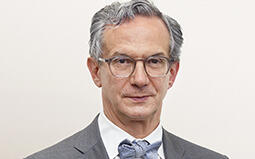 ConductorFabio Luisi
ConductorFabio Luisi
Fabio Luisi hails from Genoa. He is the Principal Conductor of the Danish National Symphony Orchestra and the Music Director of the Dallas Symphony Orchestra. He first conducted the NHK Symphony Orchestra in 2001, and in September 2022 he became Chief Conductor of the orchestra. He conducted Verdi’s Requiem in the concert to celebrate his appointment, and Mahler’s Symphonie der Tausend to commemorate the orchestra’s 2000th subscription concert in December 2023. These two monumental performances have brought him great success. He has presented works of German and Austrian composers such as Beethoven, Brahms, Bruckner and R. Strauss as well as those of Franck and Saint-Saëns, Francophone composers, and with his conducting style full of passion and poetic sentiment, has captured the hearts of many of audience members. In August 2023, his tenure as Chief Conductor was extended by three years until August 2028.
He was General Music Director of the Opernhaus Zürich, Principal Conductor of the Metropolitan Opera in New York, Principal Conductor of the Wiener Symphoniker, as well as General Music Director of the Staatskapelle Dresden and the Sächsische Staatsoper, Artistic Director and Principal Conductor of the MDR Sinfonieorchester Leipzig, Music Director of the Orchestre de la Suisse Romande and Chief Conductor of the Tonkünstler Orchester. He is Music Director of the Festival della Valle d’Itria in Martina Franca (Apulia) and has appeared as guest conductor with numerous renowned ensembles, including the Philadelphia Orchestra, the Cleveland Orchestra, the Münchener Philharmoniker, the Filarmonica della Scala, the London Symphony Orchestra, the Royal Concertgebouw Orchestra, and the Saito Kinen Orchestra, while also conducting operas at world’s major opera houses. Important recordings include Verdi, Bellini, Schumann, Berlioz, Rachmaninov, Rimsky-Korsakov, Frank Martin, and Franz Schmidt, the largely forgotten Austrian composer. In addition, he has recorded various symphonic poems by Richard Strauss, and a lauded reading of Bruckner’s Symphony No. 9 with the Staatskapelle Dresden. His recordings of Wagner’s Siegfried and Götterdämmerung with the Metropolitan Opera won Grammy awards.
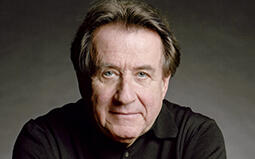 PianoRudolf Buchbinder
PianoRudolf Buchbinder
Rudolf Buchbinder, who was born in the Bohemian region of the former Czechoslovakia in 1946, is a pianist who greatly enjoys freedom while also inheriting the Viennese musical heritage. He described his career as an “infinite crescendo” twelve years ago, however, as he gained conviction in following an authentic path to honor traditions, he seems to have been mentally liberated from being overly aggressive, thus his performances began to display a free flow of emotional expressions and improvisational freshness. After his diligent academic quest and strict training, the self-assured music he produces in the excitement and exaltation of live performance exhibits his innate optimistic passion, and still retains youthful performances even though he has matured over the years.
His repertoire focuses on Bach, the works of the Viennese Classical School, and those of German Romantic composers, however, he also gives his attention to contemporary works. For more than 60 times, he has played the complete 32 piano sonatas of Beethoven in many parts of the world, has recorded them three times until now, and in March this year, he presented the complete performances at the Spring Festival in Tokyo. He returns to the NHK Symphony Orchestra for the first time in 10 years, under the baton of Fabio Luisi, as was the last time, and he will play Brahms Piano Concerto No.1. As he has two celebrated recordings of this work under Zubin Mehta and Nikolaus Harnoncourt, and, that the concerto is considered to be his specialty, we can naturally expect to hear his performance with all his might and passion.
[Takaakira Aosawa, music critic]
Download
Ticket
Program B
No. 2012 Subscription (Program B)
Suntory Hall
Google Map
Seating Chart
Single Tickets Release Date
Pre-sales for Subscribers:Wednesday, February 28, 2024
*about subscribers
Sale to General Public:Sunday, March 3, 2024
Price
| S | A | B | C | D | |
|---|---|---|---|---|---|
| Ordinary Ticket | 9,800 | 8,400 | 6,700 | 5,400 | 4,400 |
| Youth Ticket | 4,500 | 4,000 | 3,300 | 2,500 | 1,800 |
Seating chart Enlarge Print PDF
*tax included
*Subscribers receive a 10% discount (Available at NHKSO WEB Ticket and N-Kyo Guide)
*For wheelchair-accessible seats, please refer to the N-Kyo Guide
Youth Tickets
Youth Tickets are great options for those of 25 years old and younger
Subscription tickets
Release Date
ANNUAL SUBSCRIPTION TICKETS
Mon., July 17, 2023 10:00am
[For Subscribers: Sun., July 9, 2023 10:00am]
For further information and
subscription application
*Repertoire, conductor, soloists and program order are subject to change without notice.
*Pre-school children are not allowed in the concert hall

